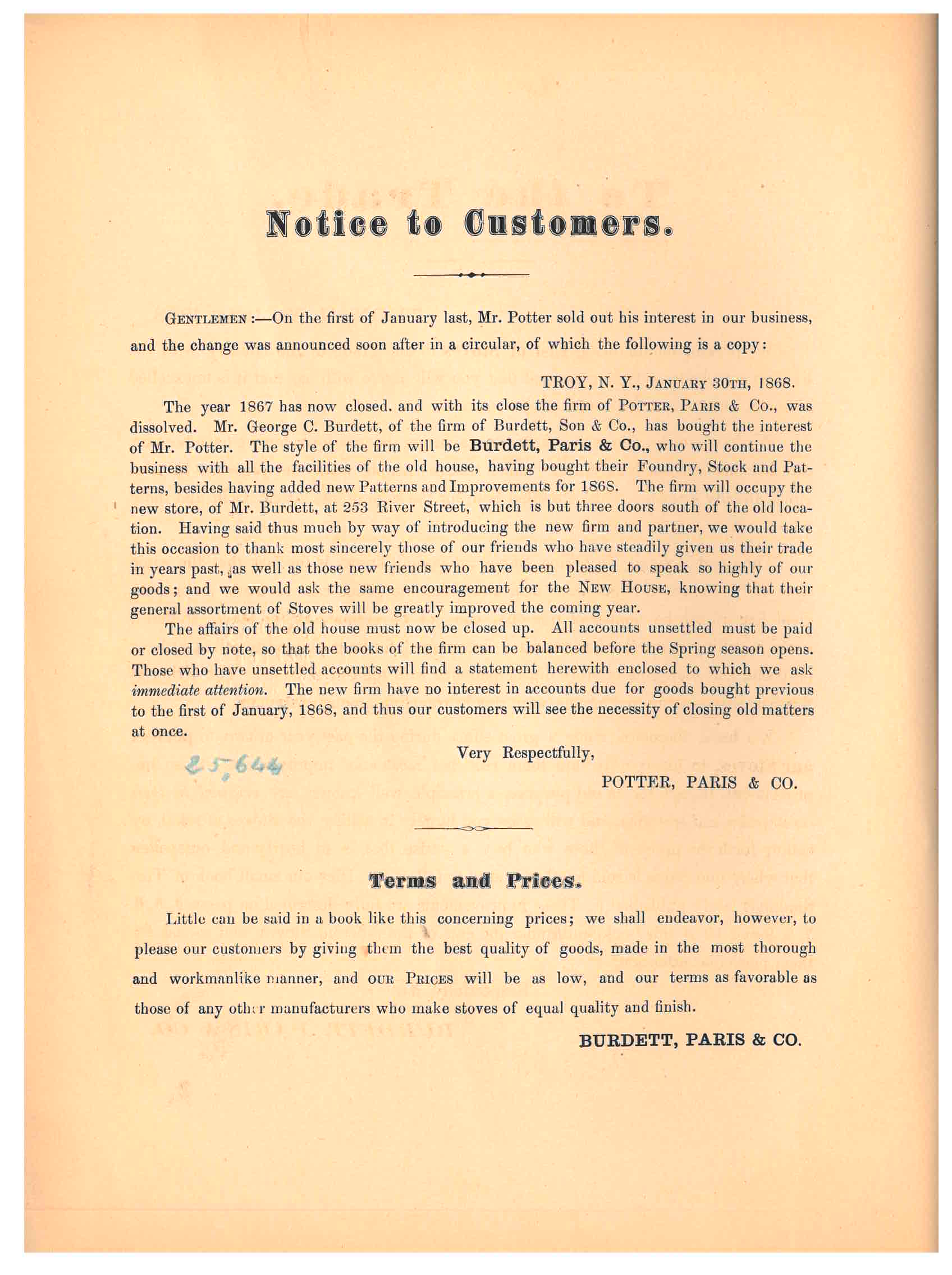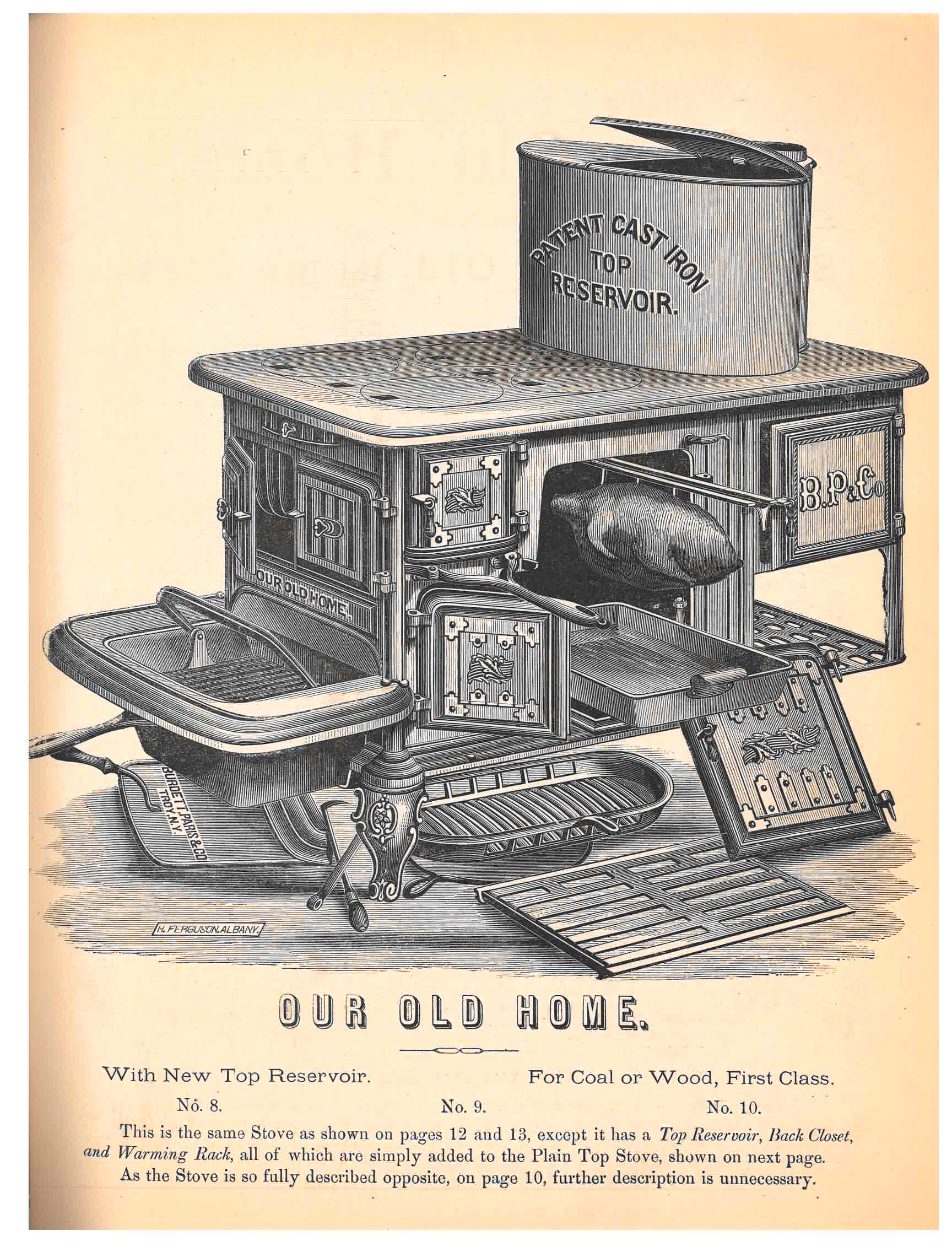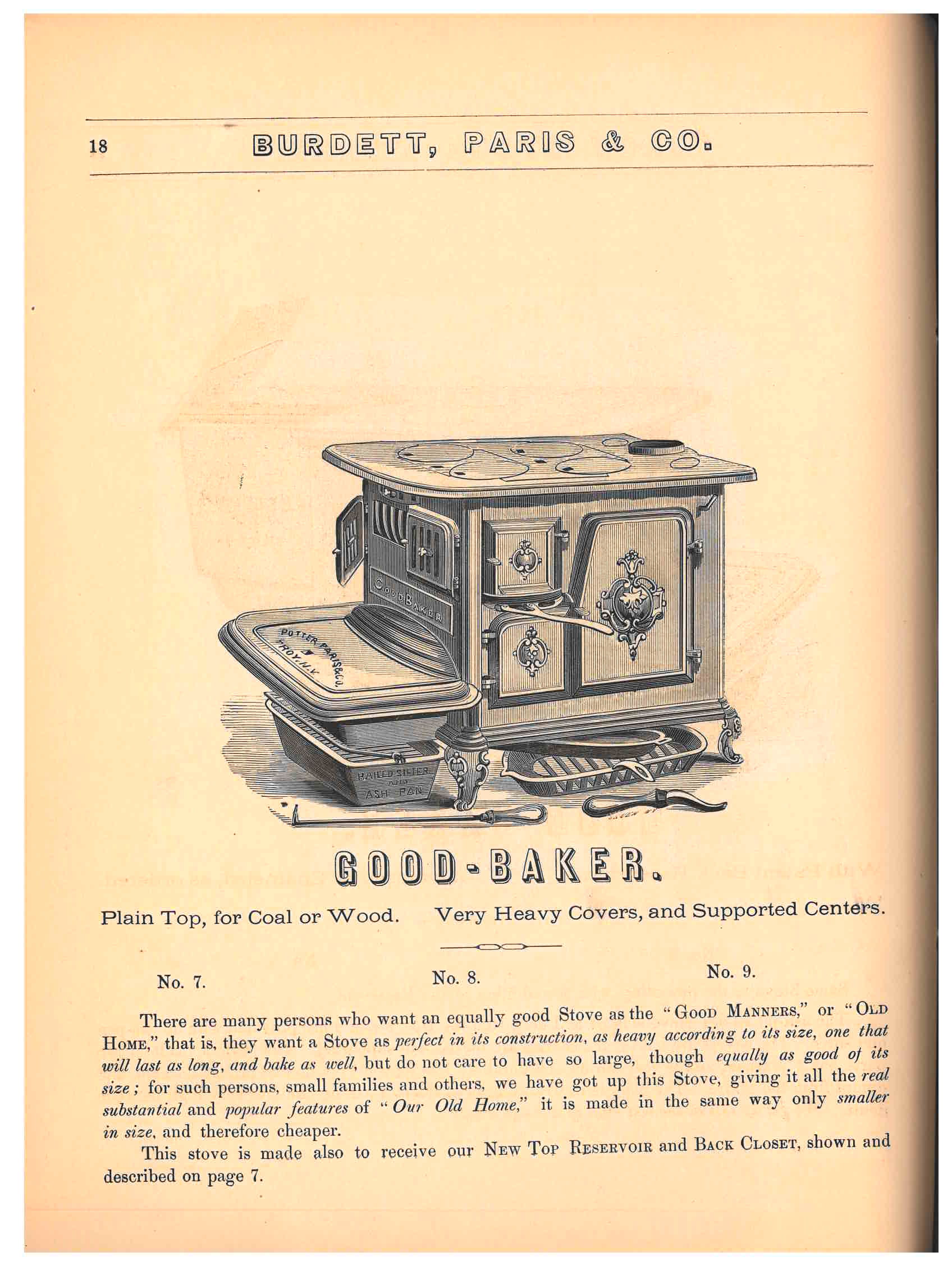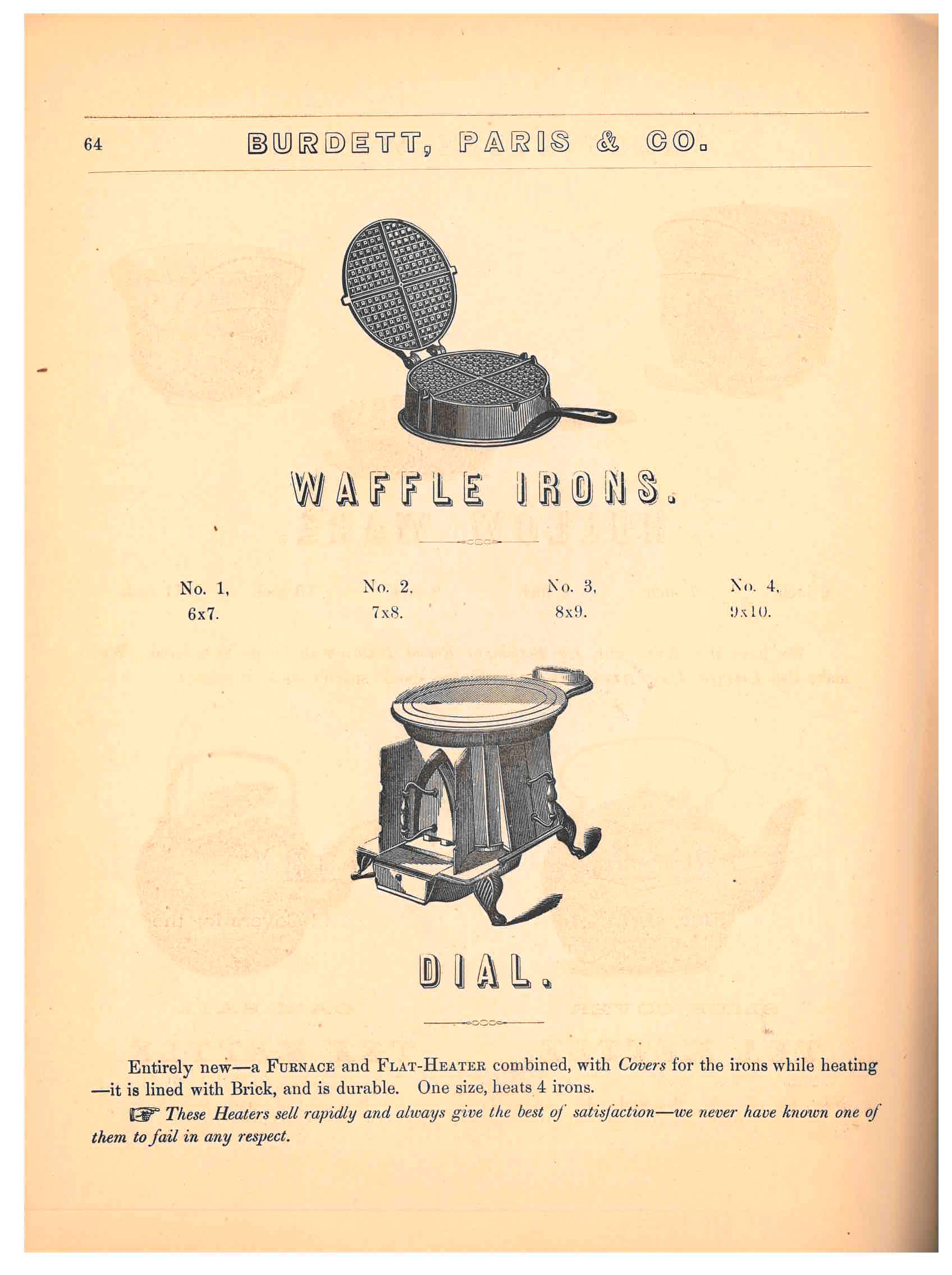What comes to mind when you think of Thanksgiving? Family gatherings, time with friends, relaxing, traveling, or maybe a delicious meal? Those meals require work, and today we have the luxury of modern kitchen appliances. But imagine the time it took to prepare a meal in the 19th Century. This 1868 trade catalog gives us a small glimpse into possible kitchens of the past.
The trade catalog is titled Illustrated Catalogue of Stoves & Hollow Ware (1868) by Burdett, Paris & Co. Their products were manufactured at the Troy Stove Works in Troy, New York. On the front cover, we discover a clue about the company’s history. It tells us that Burdett, Paris & Co. were successors to another company named Potter, Paris & Co.




Now, having learned a little about the company, let’s explore some of their stoves. One stove was called “Our Old Home.” Its fuel was coal or wood. It included a quite convenient feature. The roasting arrangement, shown below, made it easier for the cook to baste. Meat was suspended from a movable self-supporting rack which could be pulled out. A dripping pan, attached to a movable crane, was positioned below the rack and could also be pulled out. This allowed the cook to baste meat when it was outside of the oven. The meat could also be placed on or removed from the rack when outside of the oven.


Flipping a few pages further along, we come across a stove called the “Golden-West.” The catalog explains that it was made “for the Soft Coal of the Western States.” It was identical in size to “Our Old Home” and, as described in the catalog, “made with only a little less care and finish.” Its fuel was either soft coal, as already mentioned, or wood.

Burdett, Paris & Co. also manufactured other items such as hollow ware, tea kettles, and, as shown below, waffle irons. Another product shown below was the Dial. Described as “entirely new,” it was a combination furnace and flat-heater with covers for heating irons. It was capable of heating four irons.

As mentioned earlier, Burdett, Paris & Co. were successors to the firm of Potter, Paris & Co. The National Museum of American History Library also holds a trade catalog by Potter, Paris & Co. It is titled Catalogue of Stoves (1866), and as noted below on its front cover, it covered the years of 1866-1867.

Both trade catalogs, Illustrated Catalogue of Stoves & Hollow Ware (1868) by Burdett, Paris & Co. and Catalogue of Stoves (1866) by Potter, Paris & Co., are located in the Trade Literature Collection at the National Museum of American History Library.

Be First to Comment